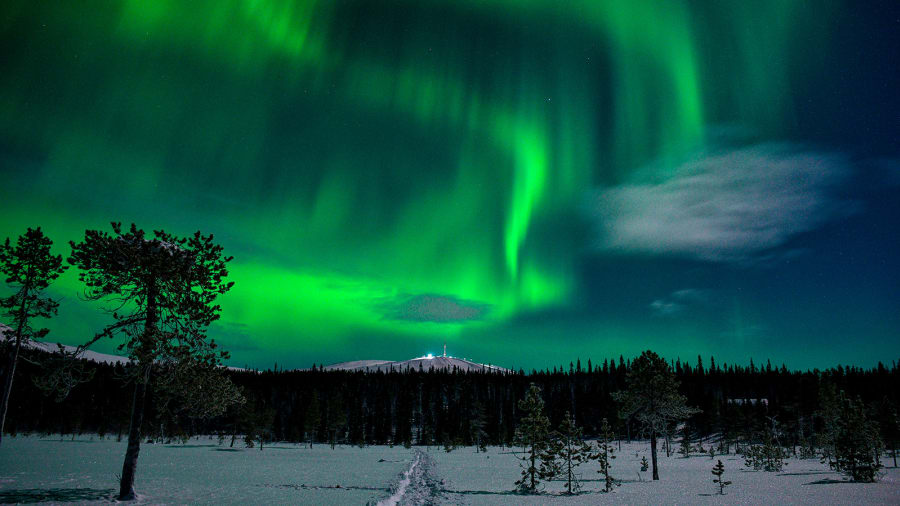The devastating loss of life and growing uncertainty have the world on edge, but there is good news for humanity: benevolence is on the rise globally.
That’s one of the key findings of the World Happiness Report, a publication by the United Nations Sustainable Development Solutions Network that draws on data from global surveys of people in around 150 countries.
Marking its 10th anniversary, the report looks at happiness around the world: the happiest nations, those at the bottom of the happiness scale, and everything in between, plus the factors that tend to lead to a greater happiness.
And with two years of data on the Covid-19 pandemic on the books, the report has uncovered something unexpected.
“The big surprise was that globally, in an uncoordinated way, there have been very large increases in all three forms of benevolence that are asked about in the Gallup World Poll,” John Helliwell, one of the three editors, told Citizen Free Press Travel. founders of the report.
Giving to charity, helping a stranger and volunteering are on the rise, “especially helping strangers in 2021, relative to before the pandemic or 2020, by a very large amount in all world regions,” said Helliwell, who is a professor emeritus at the Vancouver School of Economics, University of British Columbia.
And benevolence is arguably top of mind as the world responds to the Russian invasion of Ukraine. But before we get into how that increasingly global conflict can affect happiness, let’s take a look at the countries where sentiment was plentiful in 2021.
The happiest nation in the world is Nordic
For the fifth year in a row, Finland is the happiest country in the world, according to World Happiness Report rankings, which are largely based on life evaluations from the Gallup World Poll.
The Nordic country and its neighbors Denmark, Norway, Sweden and Iceland score very well on the measures the report uses to explain its findings: healthy life expectancy, GDP per capita, social support in times of trouble, low corruption and high trust. social, generosity in a community where people care for each other and freedom to make key decisions in life.
Denmark is second in this year’s ranking, followed by Iceland in third place. Sweden and Norway rank seventh and eighth, respectively.
Switzerland, the Netherlands and Luxembourg occupy places 4-6, with Israel at 9 and New Zealand rounding out the top 10.
Canada (15), the United States (16), and the United Kingdom (17) are among the top 20.
happiness in difficult times
Another bright spot in this year’s report: worry and stress decreased in the second year of the pandemic. While still up 4% in 2021 compared to before the pandemic, worry and stress in 2020 are up 8%.
“I think part of that is that people knew a little more about what they were up against in year two, even if there were new surprises,” Helliwell said.
Average lifespan assessments “have remained remarkably resilient” during the pandemic, with negative and positive influences offsetting each other, the report says.
“For the young, life satisfaction has decreased, while for those over 60 it has increased, with little change overall,” according to the report.
Helliwell acknowledges that there is a sense that crises bring out the best or the worst in societies.
“But in general, people are too pessimistic about the goodwill in the societies they live in, so when the real disaster happens and they see other people responding positively to help others, it raises their opinion of both themselves and their fellow citizens,” Hellwell said.
“And then you find that both trust in others and general evaluations of life often go up at times when you think ‘these are bad times,’ but what happens is that people are working together to deal with them.”
This interplay of negative and positive applies very much to the situation in Ukraine, though how the balance will ultimately tip remains to be seen. Working together will certainly offset, to some extent, the tragedies that affect Ukrainians, Helliwell said.
“Their heart is being attacked, so they will get a binding effect, but of course the actual damage is terrible.”
The effects the war will have on general happiness in Russia are especially murky because government censorship distorts the information that underpins life evaluations, he said.
The surveys on which this year’s happiness rankings were based were conducted long before the invasion. Ukraine and Russia rank in the bottom half of the global happiness rankings in the 2022 report, with Ukraine ranking 98th and Russia ranking 80th.
At 146th, Afghanistan is at the bottom of the ranking in the 2022 report, “a stark reminder of the material and immaterial damage that war causes to its many victims,” said Jan-Emmanuel De Neve, another editor at the report, in a press release.
The current war in Ukraine means that happiness in other parts of the world could falter as well.
“It is conceivable that some people who see what war can do, up close on their television screens every day, to the lives of people who have nothing to do with war and who want nothing to do with war, it can make them feel lucky not to be there or empathize to the point of hurting for the people who are there,” Helliwell said.
“And both are real and understandable emotions, but they’re playing on opposite sides of the scale.”
Hopefully, the rise in benevolence, in all its forms, will carry through to 2022 and beyond.
The happiest countries in the world, 2022 edition
1. Finland
2. Denmark
3. Iceland
4. Switzerland
5. Netherlands
6. Luxembourg
7. Sweden
8. Norway
9. Israel
10. New Zealand
11. Austria
12. Australia
13. Ireland
14. Germany
15. Canada
16. United States
17. United Kingdom
18. Czechia (Czech Republic)
19. Belgium
20. France

